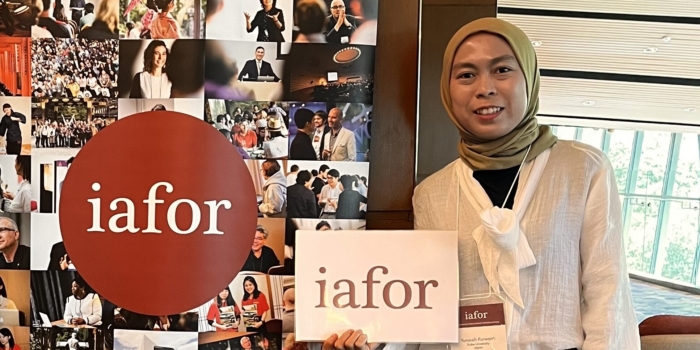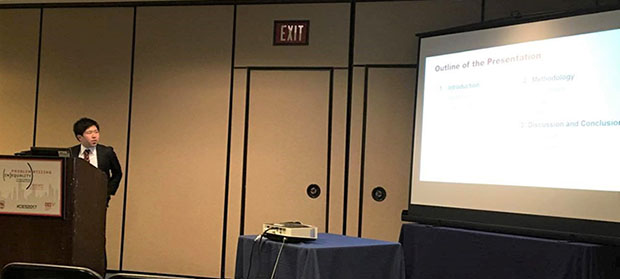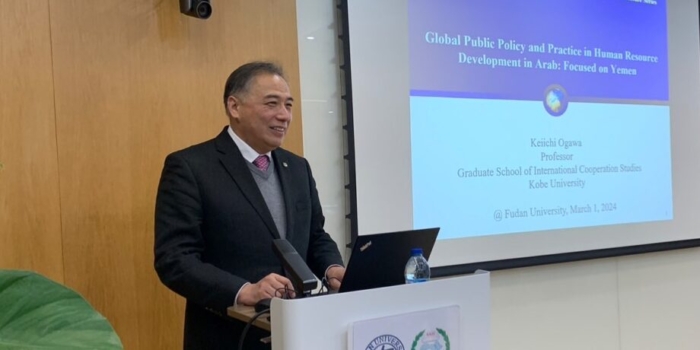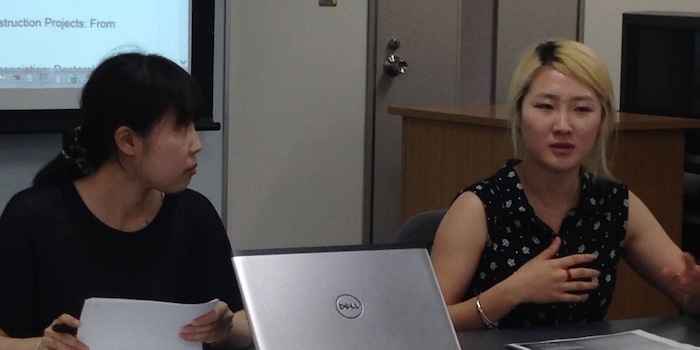From February 21–25, 2025, Ms. Yuniasih Purwanti, a doctoral student at the Graduate School of International Cooperation Studies (GSICS), Kobe University, participated in the Southeast Asian Conference on Education (SEACE) held at the Kuala Lumpur Convention Centre (KLCC), Malaysia. The event was organized by the International Academic Forum (IAFOR) and brought together scholars and practitioners from across the region to discuss critical issues in education.
On the opening day, she attended a session led by the keynote speaker, Dr. Joseph Haldane that provided valuable guidance on the academic publication process. The speaker shared best practices for achieving manuscript acceptance with minor revisions, highlighting the importance of a clearly defined theoretical framework, coherent structure, and strict adherence to publication ethics—insights especially relevant for early-career researchers navigating the peer-review process.
One of the conference highlights was the keynote address delivered by Professor Stefanie Shamila Pillai from Universiti Malaya. Her presentation focused on the landscape of language education in Malaysia, exploring its historical development, policy changes, and societal impacts. She emphasized the country’s rich linguistic diversity, with 131 living languages spoken, including Malay, English, Mandarin, Tamil, and various indigenous languages. Professor Pillai traced the shifts in language policy from the colonial period—when English was dominant—to the post-independence era, where Malay was institutionalized as the national language. Today, Malaysia continues to adopt bilingual and multilingual education models that reflect its multicultural society. The keynote also addressed current debates in Malaysian media regarding English proficiency, the role of the Malay language, and the increasing visibility of Mandarin and other ethnic languages. Professor Pillai reviewed policy documents such as the Malaysia Education Blueprint (2013–2025) and the upcoming 2026–2035 reforms, which emphasize educational liberalization and expanded access to international schools. She explored narratives around Malaysian English, including colloquial forms like “Manglish,” often perceived as non-standard, and discussed the challenge of linguistic conservatism in embracing local language variations. A critical concern raised was the decline of heritage languages, driven by limited instructional resources and generational language shift. Citing Professor Noam Chomsky, Professor Pillai highlighted the importance of language as a vessel for history, culture, and identity. She further connected language education with labor market needs, higher education goals, and national development plans. The session concluded with recommendations to revitalize heritage languages through curriculum integration, teacher training, and active community engagement.

At the conference, Ms. Yuni also joined a keynote speaker session, by Dr. Nurhasmiza Sazalli from Universiti Teknologi Malaysia (UTM) session. Dr. Nurhasmiza presented the Bijak Lestari project, a University Social Responsibility (USR) initiative aimed at empowering rural teachers through the integration of artificial intelligence (AI) in education. The presentation highlighted the key challenges faced by rural educators, including attitudinal resistance, lack of digital literacy, language barriers, and limited motivation to adopt new technologies. To address these issues, the Bijak Lestari project adopts a hands-on, learner-centered approach, grounded in adult learning principles. Through small group facilitation and real-time training with tools like ChatGPT, teachers learn to use AI for lesson planning, paperwork, and content creation. The project has shown early success in improving teacher confidence, engagement, and instructional quality, while also helping to bridge the digital divide between urban and rural schools. Dr. Nurhasmiza emphasized the importance of contextualizing AI training to teachers’ daily needs and called for stronger policy support and infrastructure to ensure sustainable integration of AI in underserved areas.
During the conference, Ms. Yuni also attended the poster presentation session, which provided an opportunity to engage with various research topics and interact with presenters from diverse academic backgrounds. The session featured a range of studies covering education, health, engineering, and cultural preservation. At this conference, she presented her research on the effectiveness of the Kartu Pra-Kerja program (Pre-Employment Card Program), an Indonesian government initiative launched in 2020 in response to the COVID-19 crisis. The program is designed to support job seekers, laid-off workers, and individuals requiring upskilling through online training and financial assistance. The program also provides vocational training to support workforce readiness. Yuni’s research offers timely insights into how the program has influenced employability, skill development, and labor market integration, particularly in West Java, Indonesia. Using a Difference-in-Differences (DiD) approach, her study examined whether the program had a significant impact on improving wages in the post-pandemic labor market. The study focuses on West Java because it is one of the most populous provinces in Indonesia with a large and diverse labor force. This makes it an ideal case to assess the impact of the Pre-Employment Card program on various employment outcomes. West Java also experienced significant economic disruption during the COVID-19 period, allowing for meaningful comparisons between pandemic and post-pandemic effects. In her study, Yuni compares the impact of the Pre-Employment Card program during the COVID-19 pandemic and in the post-pandemic period. This comparative approach allows for a deeper understanding of how the program’s effectiveness may have shifted over time, particularly as labor market conditions evolved. Her findings contribute to ongoing discussions on post-pandemic recovery and the role of targeted training programs in improving employment outcomes.
Ms. Yuni also attended a presentation delivered by a project assistant professor from Osaka University, which introduced research on the “Survival Japanese” curriculum—an innovative blended learning program designed to support ASEAN students’ language acquisition and cultural adaptation while studying in Japan. The program integrates on-demand Japanese language lectures with real-time online interactive classes to strengthen students’ communication skills in both academic and everyday contexts. With a special focus on practical language use in laboratory settings, the curriculum covers essential conversational skills and grammar. The study involved students from Indonesia (Universitas Indonesia and Institut Teknologi Bandung), Laos, Malaysia, and Brunei Darussalam. Using a mixed-methods approach that combined post-class surveys, voluntary interviews, and feedback analysis, the research examined the effectiveness of the curriculum, the challenges students encountered, and areas for potential improvement. The session highlighted the importance of tailored language support in enhancing the academic experience and social integration of international students in Japan.
Yuni’s participation in the SEACE not only enriched her academic perspective but also provided a platform to connect with scholars from across the region. The diverse sessions and collaborative atmosphere underscored the importance of interdisciplinary approaches in addressing educational challenges in Southeast Asia. Her experience reflects GSICS’s ongoing commitment to fostering international academic exchange and promoting research that informs policy and practice in the field of education and development.
Authored by Yuniasih Purwanti (Docotral Student)
Related







